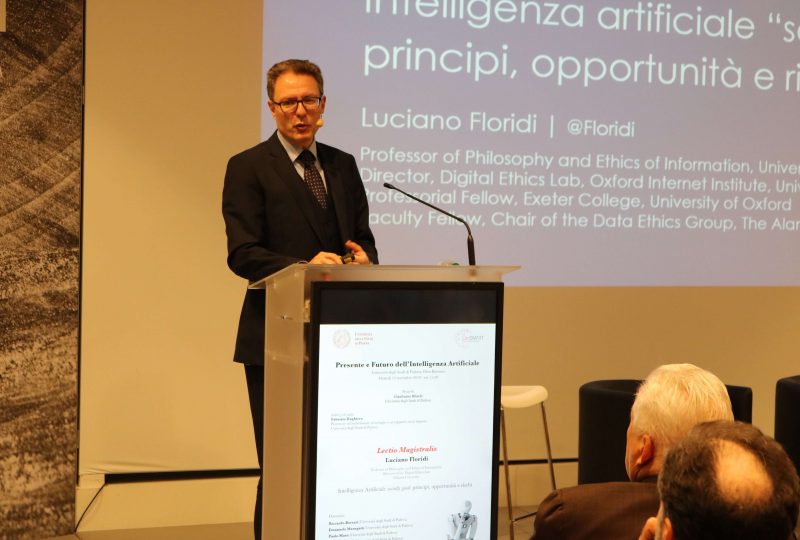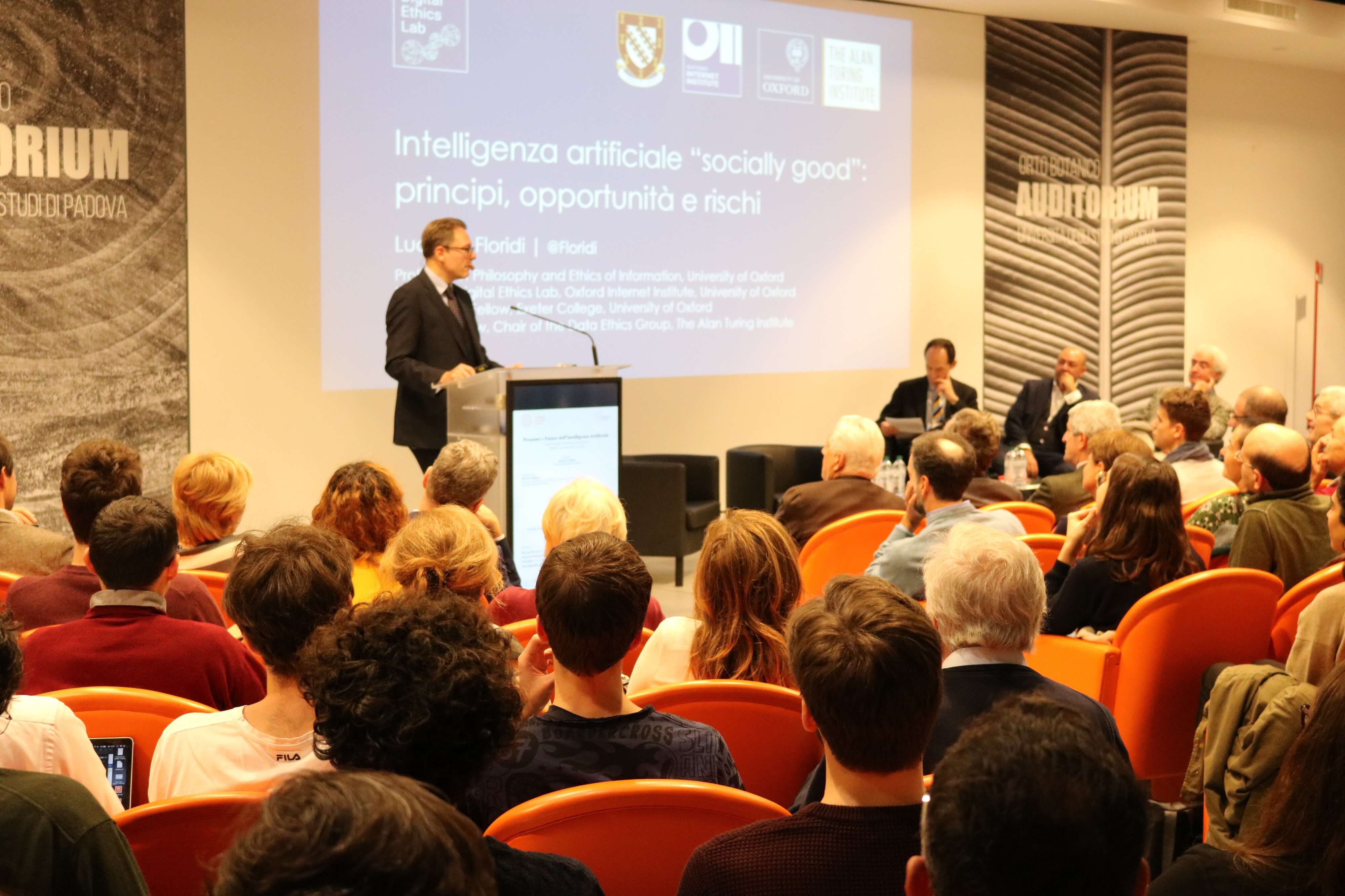Artificial intelligence: principles, opportunities and risks
20 November 2018 | Written by La redazione
At the University of Padua, there was the Lectio magistralis of Luciano Floridi, professor of philosophy and ethics of information at the University of Oxford

“Artificial intelligence has made enormous strides, but it still has many more to do. This technology can help us solve many problems, but it is up to us to decide where and how to use it. The hope is that it is used to make our society better and more right, that the benefits that will result are distributed in the right way and that the most foolish risks are avoided: that of entrusting the control of our lives to mechanisms that are not then so clever and the “unconditional” and “unconscious” delegation of decisions “.
Luciano Floridi, professor of philosophy and ethics of information at the University of Oxford and director of the digital ethics laboratory of the Oxford Internet Institute, was a guest at the University of Padua, where he was the protagonist of the Lectio Magistralis “Socially Good Artificial Intelligence: principles, opportunities and risks “. During the meeting, opened by the greetings of Fabrizio Dughiero, Vice-Rector for the technological transfer of the University of Padua, Floridi focused on the present and the future of artificial intelligence, placing the accent also on ethical challenges related to the development and use of this technology.
The five ethical principles. Floridi, who is a member of the EU’s Ethics Advisory Group on Ethical Dimensions of Data Protection, worked on a document that identified 5 ethical principles on which the development and management of artificial intelligence should be based: beneficence, not – maleficence, autonomy, justice and explicability. In addition, together with the colleagues of AI4People, Floridi has produced a document containing some recommendations, fundamental for guiding the political class in the governance of this technology: “Without a good policy – said Floridi to our microphones – digital innovation remains itself”.






